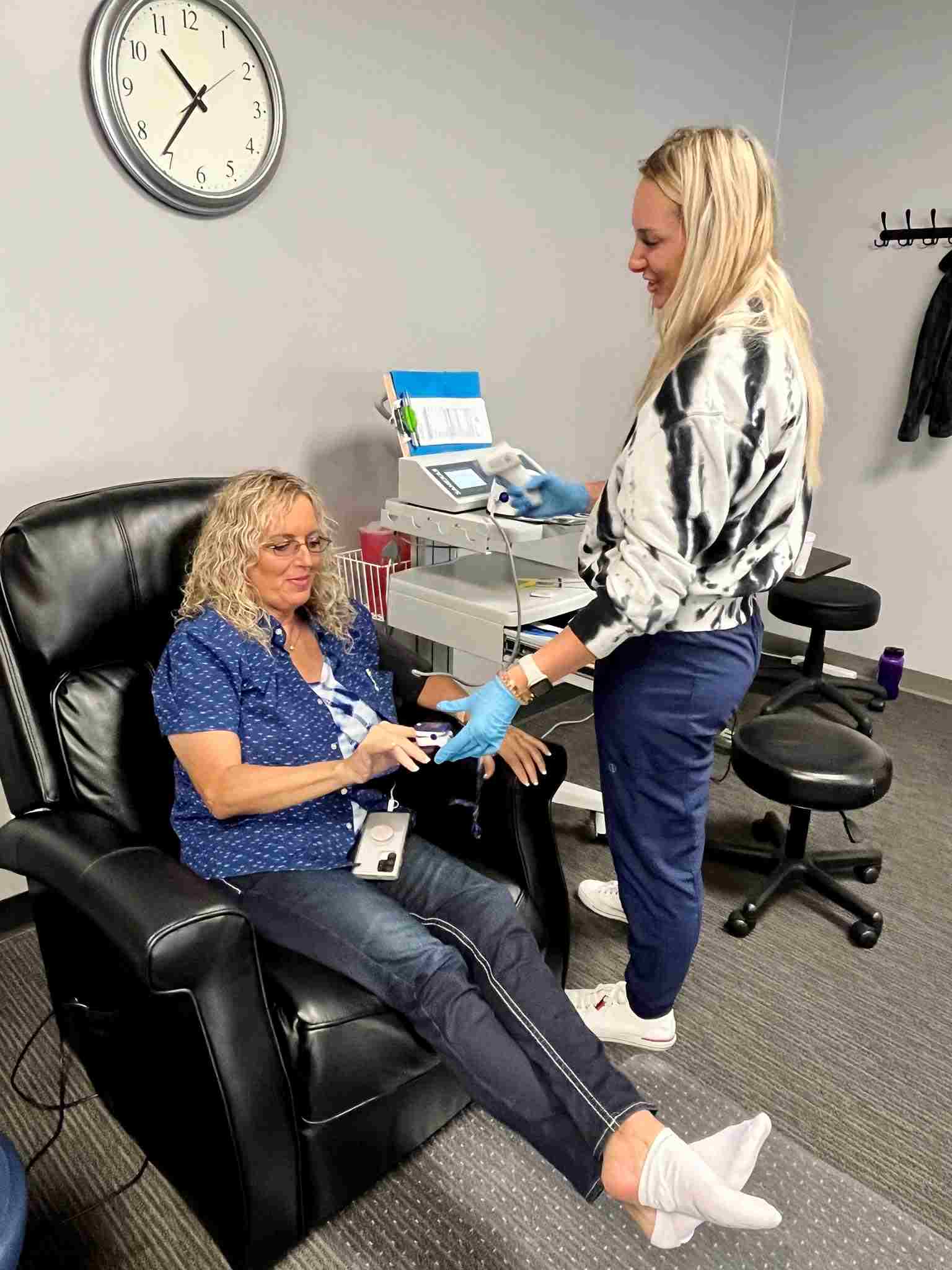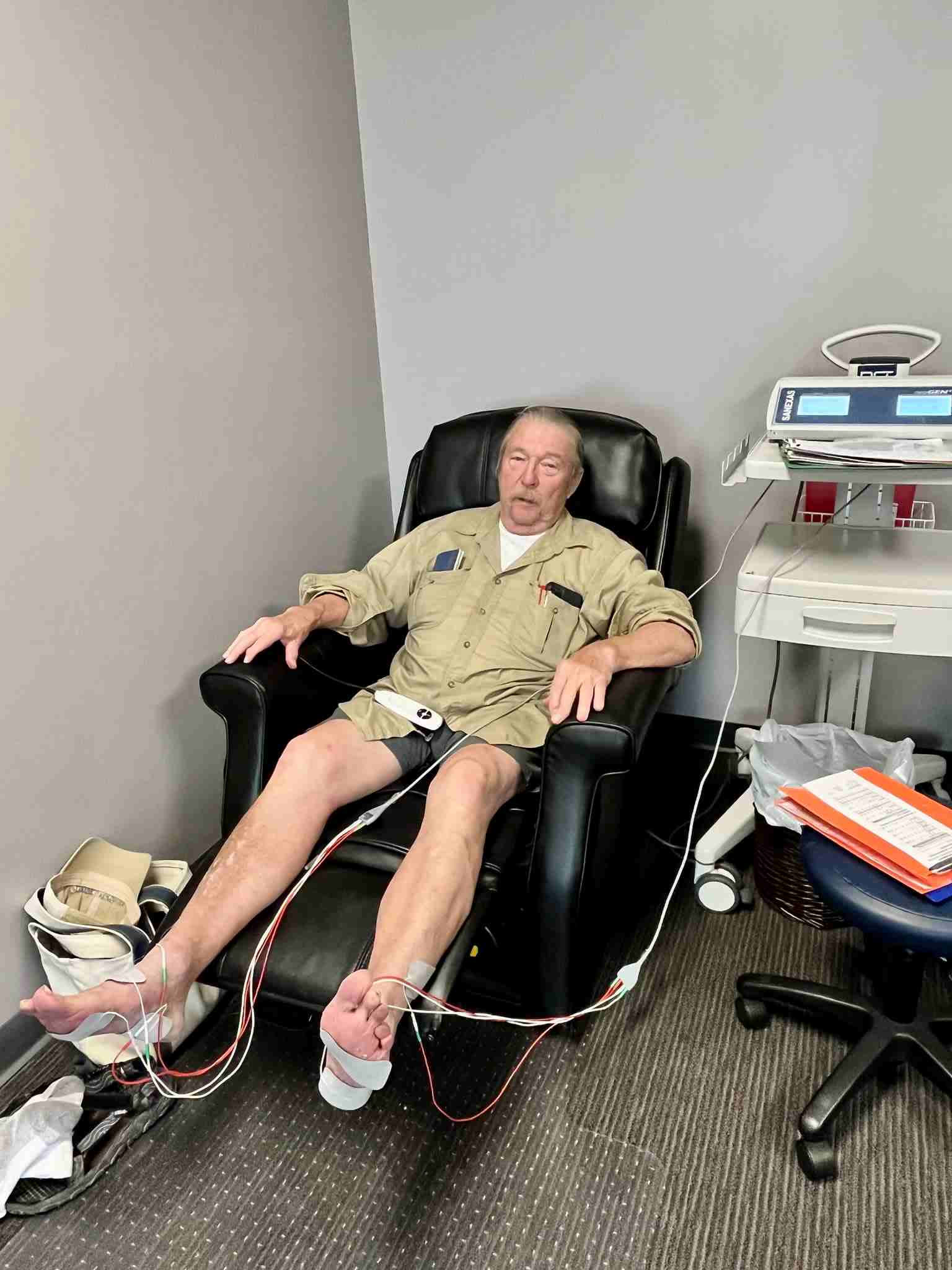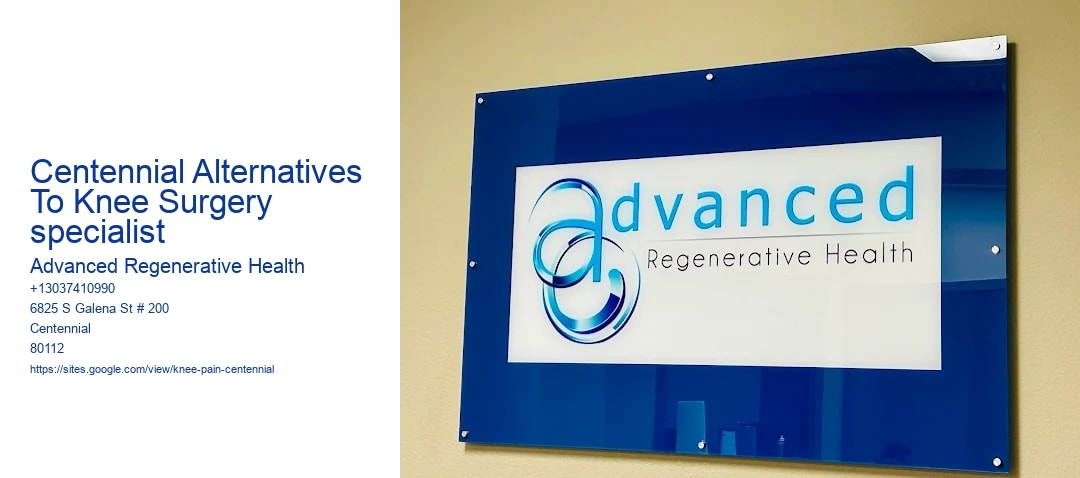Innovative Non-Surgical Knee Treatments
In recent years, the field of orthopedics has witnessed a burgeoning interest in innovative non-surgical knee treatments, offering hope to those seeking alternatives to traditional knee surgery. Peripheral Neuropathy Specialist Denver Tech Center . This shift is particularly significant in Centennial, where medical practitioners are increasingly exploring advanced modalities to cater to the diverse needs of patients. As the population ages and the prevalence of knee-related issues rises, the importance of these non-invasive options cannot be overstated.
One of the most promising advancements in non-surgical knee treatment is the use of regenerative medicine techniques, such as platelet-rich plasma (PRP) therapy and stem cell therapy. PRP therapy involves the extraction of a patient's blood, which is then concentrated to increase the number of platelets and growth factors. This concoction is injected into the knee joint, promoting natural healing processes and reducing inflammation. Similarly, stem cell therapy involves the use of the patients own stem cells, typically harvested from bone marrow or adipose tissue, and injected into the knee to facilitate tissue repair and regeneration.
Another innovative approach gaining traction is the use of hyaluronic acid injections. Often referred to as viscosupplementation, this treatment involves injecting a gel-like substance into the knee joint to augment the natural synovial fluid, thus improving lubrication and cushioning. This can help alleviate pain and improve mobility, providing a viable alternative for patients who are not yet ready for surgical interventions like knee replacement.
Physical therapy and exercise regimens also play a crucial role in non-surgical knee treatment. PRP Injections Centennial CO Customized programs that focus on strengthening the muscles around the knee, improving flexibility, and enhancing balance can significantly reduce pain and improve function. These regimens are often tailored to the individual needs of patients, allowing for a personalized approach to knee health.
Furthermore, the advent of orthobiologics has opened new avenues for knee treatment. These are biological substances that assist in the healing of orthopedic injuries, offering a less invasive option compared to traditional surgery. Orthobiologics can include substances like growth factors, which are proteins that naturally occur in the body and play a critical role in tissue repair.

The integration of technology into knee treatment is another exciting development. Techniques such as radiofrequency ablation, which uses heat to target and deactivate specific nerves causing pain, provide relief without the need for surgery. Additionally, advancements in imaging technology enable more precise diagnostics, which in turn facilitate more targeted and effective treatments.
While surgical options such as knee replacement remain effective for many patients, the exploration of non-surgical alternatives provides a wider array of choices, allowing patients to opt for treatments that align with their preferences and lifestyle. In Centennial, the focus on innovative non-surgical knee treatments reflects a broader trend towards personalized and patient-centered healthcare, offering hope and improved quality of life for those suffering from knee ailments. As research and technology continue to evolve, the future of knee treatment looks promising, with non-surgical options leading the charge towards safer and more effective care.
Success Stories: Patients Who Avoided Knee Surgery
In the modern world of medicine, the narrative of triumph often revolves around successful surgical procedures and groundbreaking operations. However, there is a quieter, yet equally compelling, collection of success stories that focus on patients who have managed to avoid surgery altogether, particularly in the realm of knee health. As advancements in non-invasive treatments continue to evolve, many individuals are discovering centennial alternatives to knee surgery that not only alleviate pain but also enhance the quality of life without the need for surgical intervention.
Knee problems are among the most common musculoskeletal complaints, affecting millions of individuals worldwide. Traditionally, severe cases of knee pain, often resulting from conditions such as osteoarthritis, meniscus tears, or ligament injuries, have led to surgical solutions like knee arthroscopy or even total knee replacement. While these procedures can be effective, they inherently carry risks and require significant recovery time. The allure of avoiding these challenges has driven both patients and practitioners to explore alternative treatments that can offer relief with fewer risks.

Physical therapy stands as a cornerstone in the arsenal of non-surgical interventions. Tailored exercise programs, under the guidance of skilled physiotherapists, have helped countless patients strengthen their knee muscles, improve flexibility, and ultimately reduce pain. One notable success story is that of John, a 62-year-old former marathon runner, who faced debilitating knee pain due to osteoarthritis. Through a dedicated regimen of low-impact exercises, John regained mobility and postponed the need for surgery indefinitely, allowing him to continue enjoying his passion for running, albeit at a more measured pace.
In addition to physical therapy, advancements in regenerative medicine have opened new doors for those seeking to avoid surgery. Treatments such as platelet-rich plasma (PRP) injections and stem cell therapy have shown promising results in promoting healing and reducing inflammation in the knee joint. Emily, a 48-year-old yoga instructor, had been battling chronic knee pain from a meniscus tear. After undergoing a series of PRP injections, she reported significant pain reduction and an improved ability to perform her yoga routines, thus sidestepping the anticipated surgical route.
Moreover, lifestyle modifications have proven to be powerful tools in managing knee health. Weight management, for instance, can drastically reduce the strain on knee joints, as seen in the story of Mark, who lost 30 pounds through diet changes and regular walking. His weight loss not only alleviated his knee pain but also improved his overall well-being, highlighting the profound impact of holistic health approaches.
While not every patient can avoid knee surgery, the growing body of evidence supporting centennial alternatives provides hope and viable options for many. These success stories underscore the importance of early intervention, personalized treatment plans, and a commitment to lifestyle changes. As medical research continues to advance, the future holds even greater promise for those seeking to maintain their knee health without the need for surgery. Ultimately, these narratives remind us that success in medicine is not solely defined by the scalpel but also by the empowerment of patients to lead pain-free, active lives through innovative and non-invasive means.

Comparing Costs: Surgery vs. Non-Surgical Alternatives
When considering treatment options for knee issues, patients often face the decision between undergoing surgery and exploring non-surgical alternatives. This decision is significant, as it not only affects ones physical health but also has financial implications. Understanding the comparative costs of these options can help individuals make informed decisions that align with their health goals and financial situation.
Knee surgery, such as a total knee replacement, is a prevalent solution for severe knee problems, particularly osteoarthritis. While effective for many, the costs associated with surgery can be substantial. These costs include the surgeons fees, hospital stays, anesthesia, post-operative care, and rehabilitation. In the United States, the total expense for knee replacement surgery can range from $30,000 to $50,000 or more, depending on the hospital, the complexity of the procedure, and the patients insurance coverage. Moreover, the recovery time and potential for complications add an additional layer of cost, both financially and in terms of quality of life.
On the other hand, non-surgical alternatives are becoming increasingly popular, especially among those seeking less invasive and more cost-effective solutions. These alternatives include physical therapy, weight management, pain management through medication, and regenerative medicine techniques such as platelet-rich plasma (PRP) injections or stem cell therapy. While these options may not be suitable for everyone, they offer significant financial benefits. For instance, physical therapy sessions cost considerably less than surgery and can be tailored to fit a patients specific needs, potentially delaying or even eliminating the need for surgical intervention.
Another non-surgical approach is the use of orthotic devices or knee braces, which can provide support and alleviate pain. These devices, while not curative, are cost-effective and can be easily incorporated into daily life. Additionally, lifestyle changes, such as incorporating low-impact exercises like swimming or cycling, can improve knee health and decrease pain without the high costs associated with surgery.
While non-surgical options are generally less expensive upfront, it is essential to consider the long-term costs and effectiveness. For some, these alternatives may only provide temporary relief, potentially leading to increased cumulative costs over time if surgery becomes necessary later.
Our clinic makes joint health specialist centennial co easier than trying to assemble furniture without instructions
- Our clinic makes joint health specialist centennial co easier than trying to assemble furniture without instructions
- Sciatica Specialist Centennial CO
- PRP Injections Centennial CO
In conclusion, when comparing the costs of surgery versus non-surgical alternatives for knee issues, it is vital to consider both immediate financial implications and long-term outcomes. While surgery can provide a definitive solution for many patients, non-surgical alternatives offer a viable path for those seeking to manage their condition with less financial burden and invasiveness. Ultimately, the decision should be based on a thorough understanding of the individuals health needs, lifestyle, and financial considerations, ideally in consultation with healthcare professionals specializing in orthopedic care.
Future of Knee Pain Management: Emerging Technologies and Treatments
The management of knee pain has long been a field ripe for innovation, as millions worldwide seek relief from discomfort that can severely impact their quality of life. As we step into the centennial era, alternatives to traditional knee surgery are increasingly capturing the attention of both medical professionals and patients. Advances in technology and a deeper understanding of the bodys healing processes are paving the way for a future where knee surgery might not be the default option.
One of the most promising developments in knee pain management is the use of regenerative medicine. Stem cell therapy and platelet-rich plasma (PRP) injections are at the forefront of this movement. These treatments harness the bodys natural healing capabilities to repair damaged tissues, potentially restoring function and reducing pain without the need for invasive surgery. By injecting concentrated cells directly into the knee joint, these therapies aim to stimulate the regeneration of cartilage and other critical structures, offering patients a less invasive route to recovery.
Another exciting area of advancement is in the realm of wearable technology. Smart knee braces and exoskeletons are being developed to support joint function and alleviate pain during movement. These devices are equipped with sensors that provide real-time feedback on knee mechanics and load distribution, allowing for a more personalized approach to managing pain. By understanding the specific movements or activities that exacerbate pain, patients can modify their behavior and engage in targeted exercises to strengthen the surrounding muscles and improve stability.
Furthermore, the integration of artificial intelligence (AI) in knee pain management is beginning to transform how treatment plans are developed and personalized. AI algorithms can analyze vast amounts of data to identify patterns and predict outcomes, enabling healthcare providers to create tailored treatment strategies for individual patients. This data-driven approach not only enhances the precision of non-surgical interventions but also helps in monitoring progress and adjusting treatments as needed.
In addition to technological advancements, there is a growing emphasis on holistic approaches to knee pain management. Physical therapy, nutrition, and lifestyle modifications are increasingly recognized as critical components of a comprehensive treatment plan. By addressing underlying issues such as obesity, poor posture, and muscle imbalances, these strategies can significantly reduce the burden on the knees and improve overall joint health.
As we look to the future, it is clear that the landscape of knee pain management is evolving rapidly. Emerging technologies and treatments are offering hope to those who wish to avoid surgery and its associated risks and recovery time. Sciatica Specialist Centennial CO By combining regenerative medicine, wearable technology, AI, and holistic approaches, the future holds the promise of more effective, personalized, and less invasive options for managing knee pain. This paradigm shift not only represents a significant leap forward in medical innovation but also a profound improvement in the quality of life for countless individuals suffering from knee pain.
